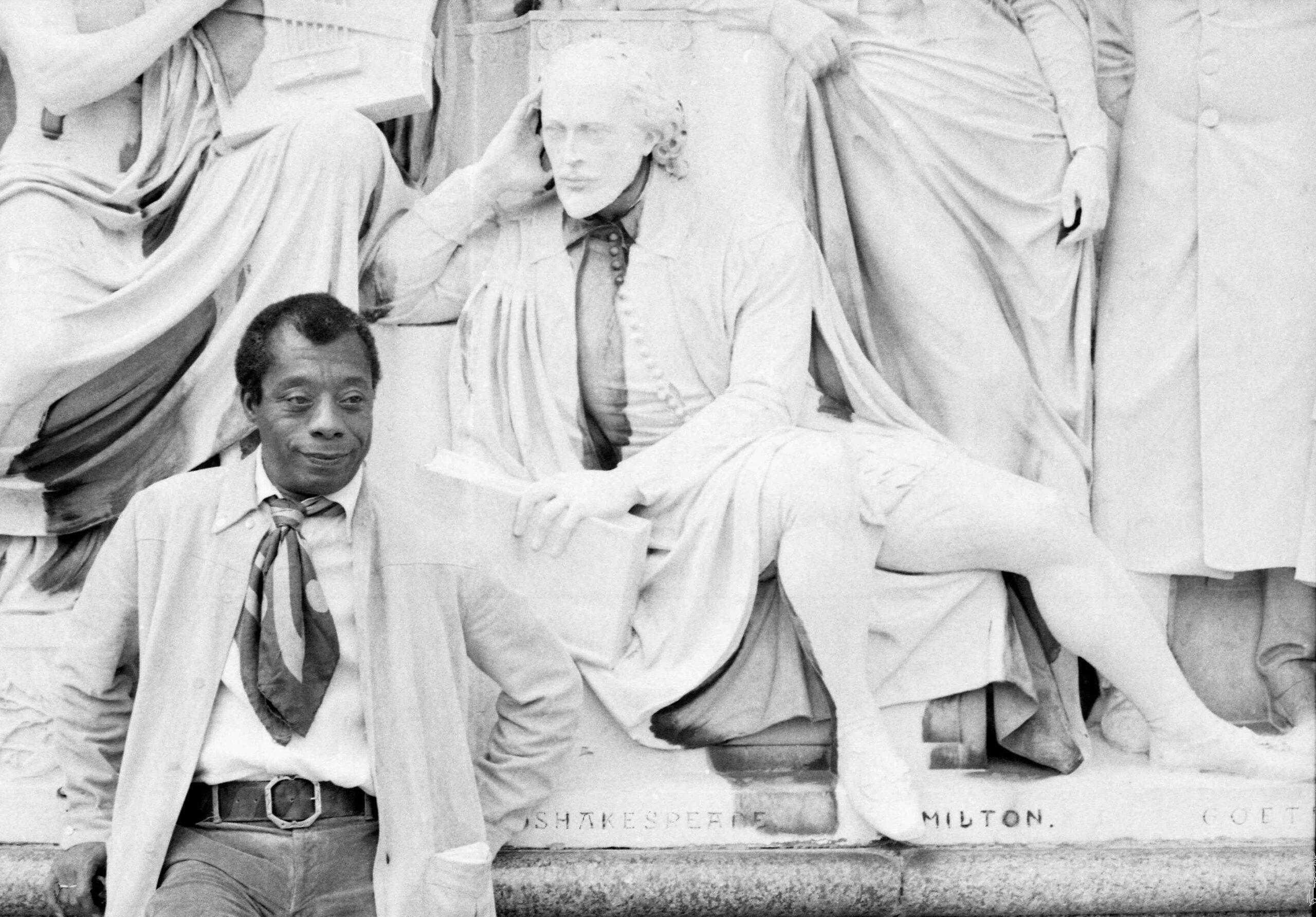In 1956, James Baldwin’s seminal novel, Giovanni’s Room, was published. The story focuses on David, a bi American man who struggles with his sexual identity and desires. He goes to Paris and meets a man named Giovanni, who further amplifies David’s inner turmoil. Giovanni, who is also bi, forms an intense physical and emotional connection with David. Consequently, Giovanni becomes the object of David’s love and hate because Giovanni reminds David of what he truly wants but denies himself.
The relationship between the two men occurs while Hella, David’s female lover, is away in Spain. Baldwin’s novel examines the complexity that transpires when bisexuality, masculinity, and gender identity intertwine in a world that sneers at same-sex desires. Please be warned that I will be discussing the book’s plot, and there will be spoilers ahead.

Giovanni’s Room delivers a realistic, nuanced, and at times, painfully honest depiction of male bisexuality in the 20th century. The story does this primarily through its two main characters, David and Giovanni. While David feebly attempts to suppress his true nature, Giovanni wears his sexuality on his sleeve.
The contrast between their perspectives towards same-sex desires is evident in how Giovanni responds to David’s paranoia about Hella learning about his sexuality. Giovanni says, “To find out, to find out, you keep saying, as though we were accomplices in a crime. We have not committed any crime.” Giovanni is unapologetically open about his sexuality; he is not fazed by the pseudo-morality that has governed David for most of his life.
Giovanni is significant because his character shows the diversity of the bi spectrum. There’s a point in the story when David concludes that Giovanni does not “have a very high opinion of women.” Giovanni’s response confirms that he is misogynistic while simultaneously reflecting his sexual fluidity. He says, “I perhaps don’t like women very much, that’s true. That hasn’t stopped me from making love to many and loving one or two. But most of the time — most of the time, I made love only with the body.”
Underneath the bi umbrella, Giovanni enjoys sex with men and women, but he is more inclined to fall in love with men. Giovanni’s sexuality speaks volumes about Baldwin’s ability to bring a complex representation of bisexuality to the audience. Keep in mind that Baldwin wrote the book during a time when same-sex desires were considered a “sociopathic personality disturbance.” It’s also important to note that Giovanni’s character reflects how bi men might harbor sexist ideas despite being victims of patriarchy themselves.
If Giovanni represents the rare case when a sexually fluid man is unashamed of who he is, David is a stark example of why even today, the majority of bi men remain in the closet. David’s suppressed desires and desperate need to pass as heterosexual cause him to mistreat others throughout the story. At the beginning of the novel, we see David describe how in his younger days, he bullies a boy named Joey to appear manly; Joey used to be David’s close friend and made him realize that he is attracted to men after they slept together.
David’s sexual panic is prevalent throughout the times he’s with Giovanni as well. “With this fearful intimation, there opened in me a hatred for Giovanni which was as powerful as my love and which was nourished by the same roots.” His inability to accept himself drove David to hate the men who made him genuinely happy.
My sexuality unfolded itself to me during my early years in college. I remember experiencing a particular hysteria because throughout my life, up until that point, my attraction was only geared towards women (or so I thought). Although I didn’t project my insecurities onto others or inflict suffering on people like David’s character did in the novel, I dealt with excruciating emotional pain. However, I did share one tactic in common with David, which was using sex with women to negate the fact that I was also attracted to men.
David scrambles to sleep with a woman when he learns that Hella is returning to Paris. He had been having sex with Giovanni for a while, so David felt that a woman’s touch would return him to normalcy. “I wanted to find a girl, any girl at all.” He runs into an American girl named Sue, and they have sex. While in the act, David realizes that sleeping with her won’t change anything. He says, “Sue was not Hella, and she did not lessen my terror of what would happen when Hella came: she increased it, she made it more real than it had been before.”
David’s devotion to Western heteronormativity came at the expense of people who loved him. He doesn’t love himself, and in turn, he loses the capability to love anyone, man or woman. David realizes his self-imprisonment at the end when he says, “I long to crack that mirror and be free.”
James Baldwin believed that sentimentality was “the ostentatious parading of excessive and spurious emotion” and “the mark of dishonesty”. It should surprise no one why he blessed the world with such a raw and moving novel that chooses honesty over cheesiness. I left out crucial details of how the story ends because I believe that Baldwin’s novel should be read and felt; spoiling certain aspects of the story would do the reader no justice.
If you’re looking for a bi story with a happy ending, then Giovanni’s Room is not the book for you. However, if you wish to dive into a story that plunges into the painful realities of being a bi man, then I highly encourage you to read this book.